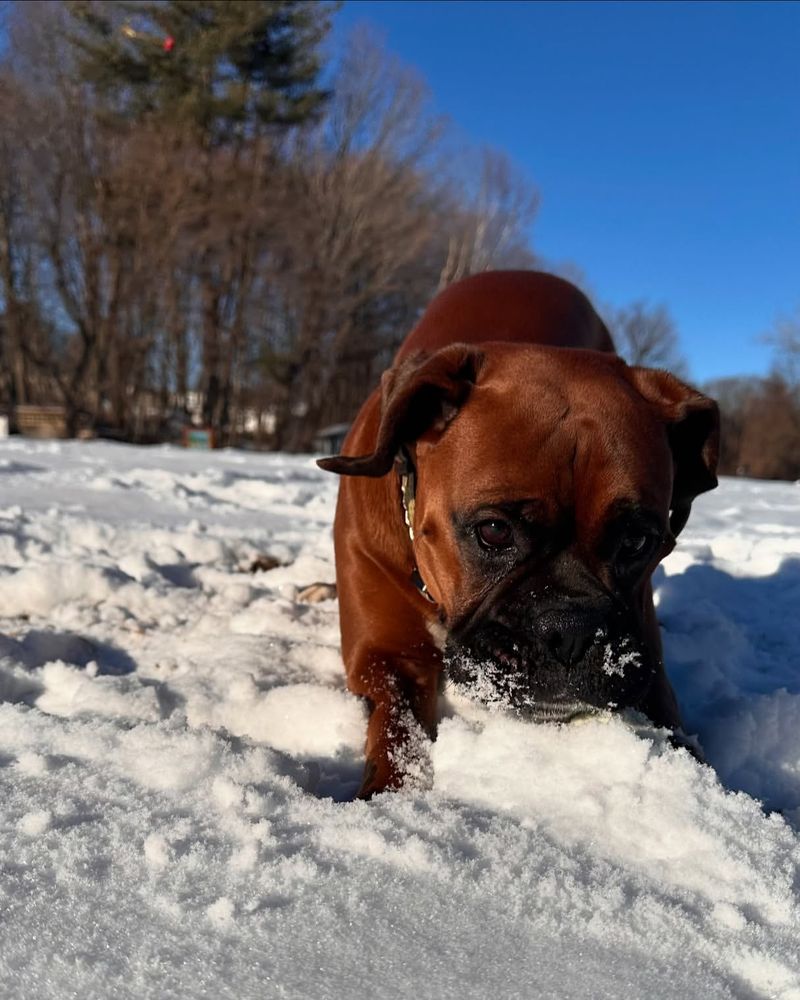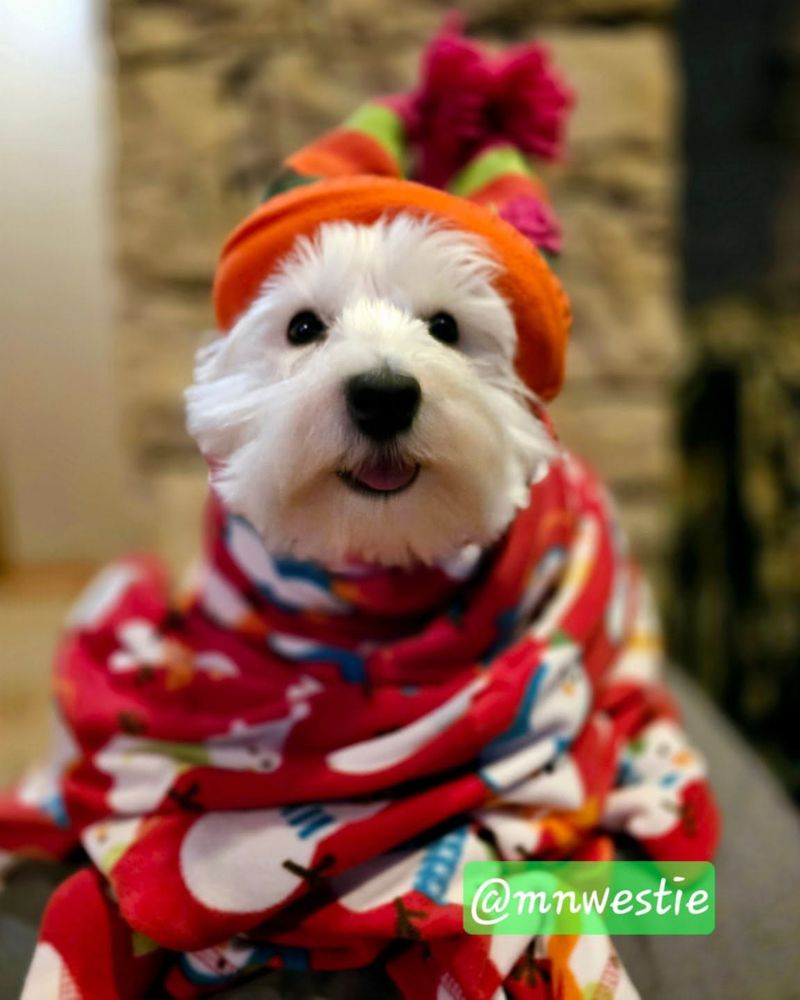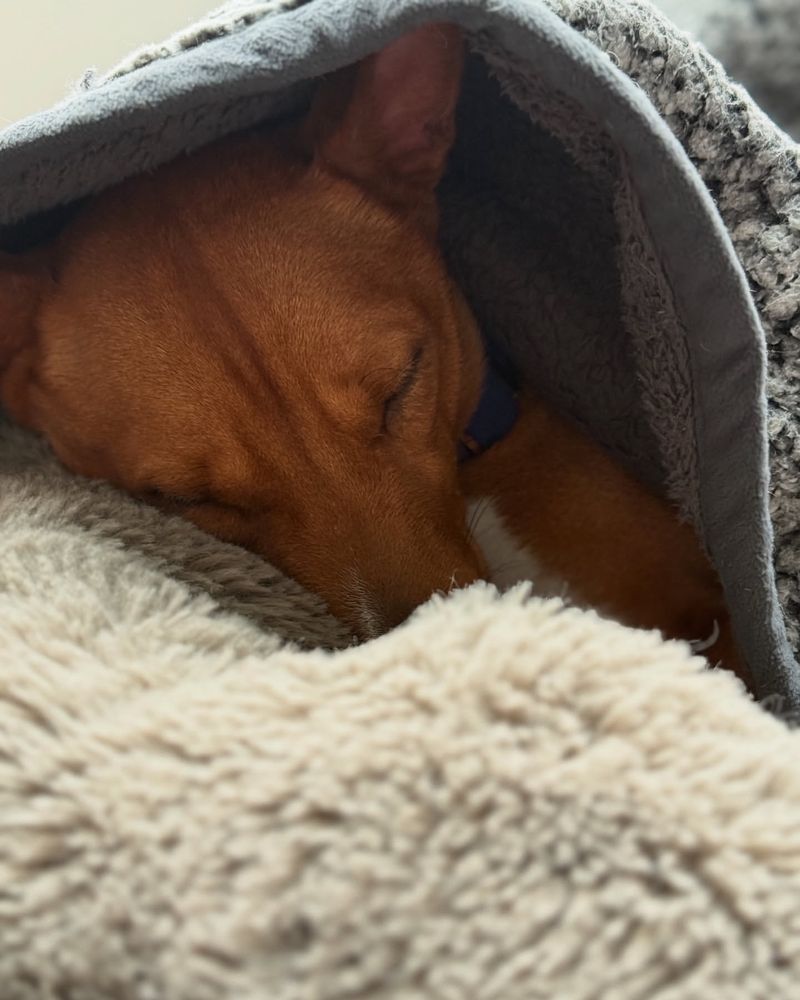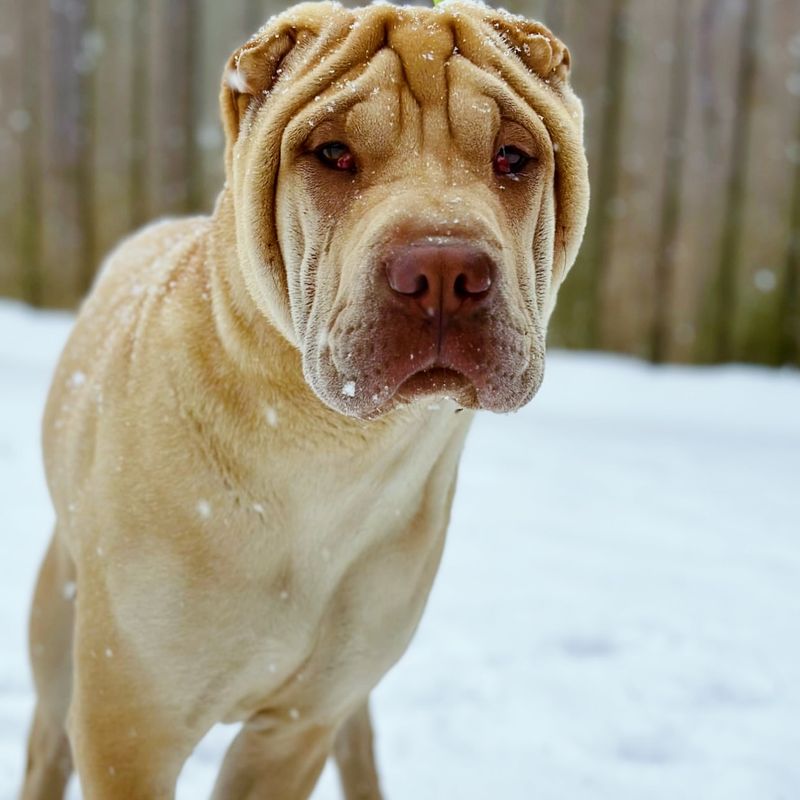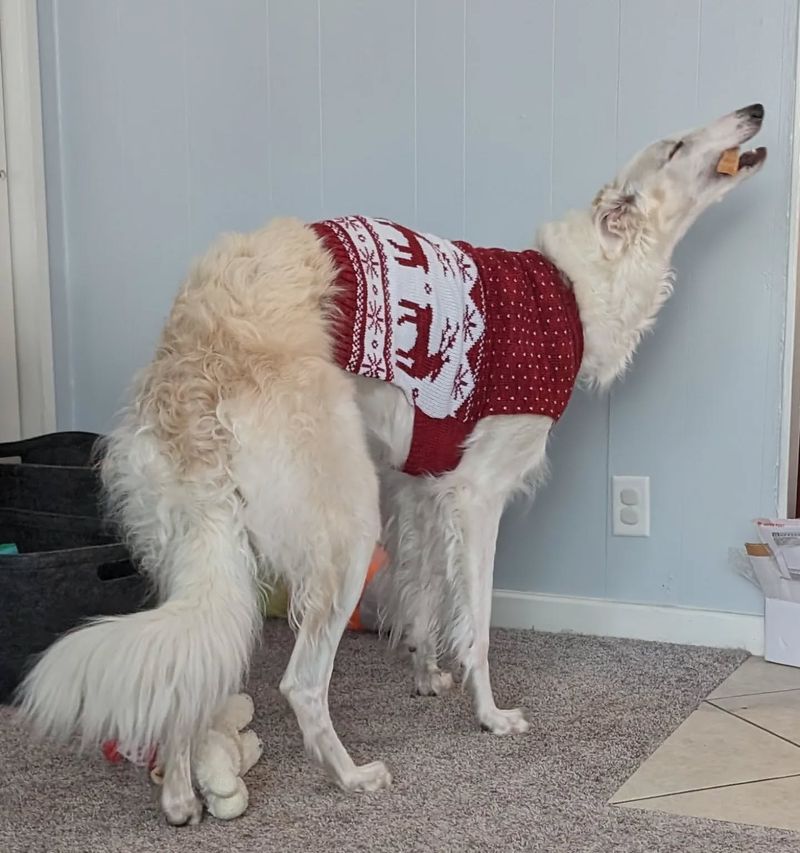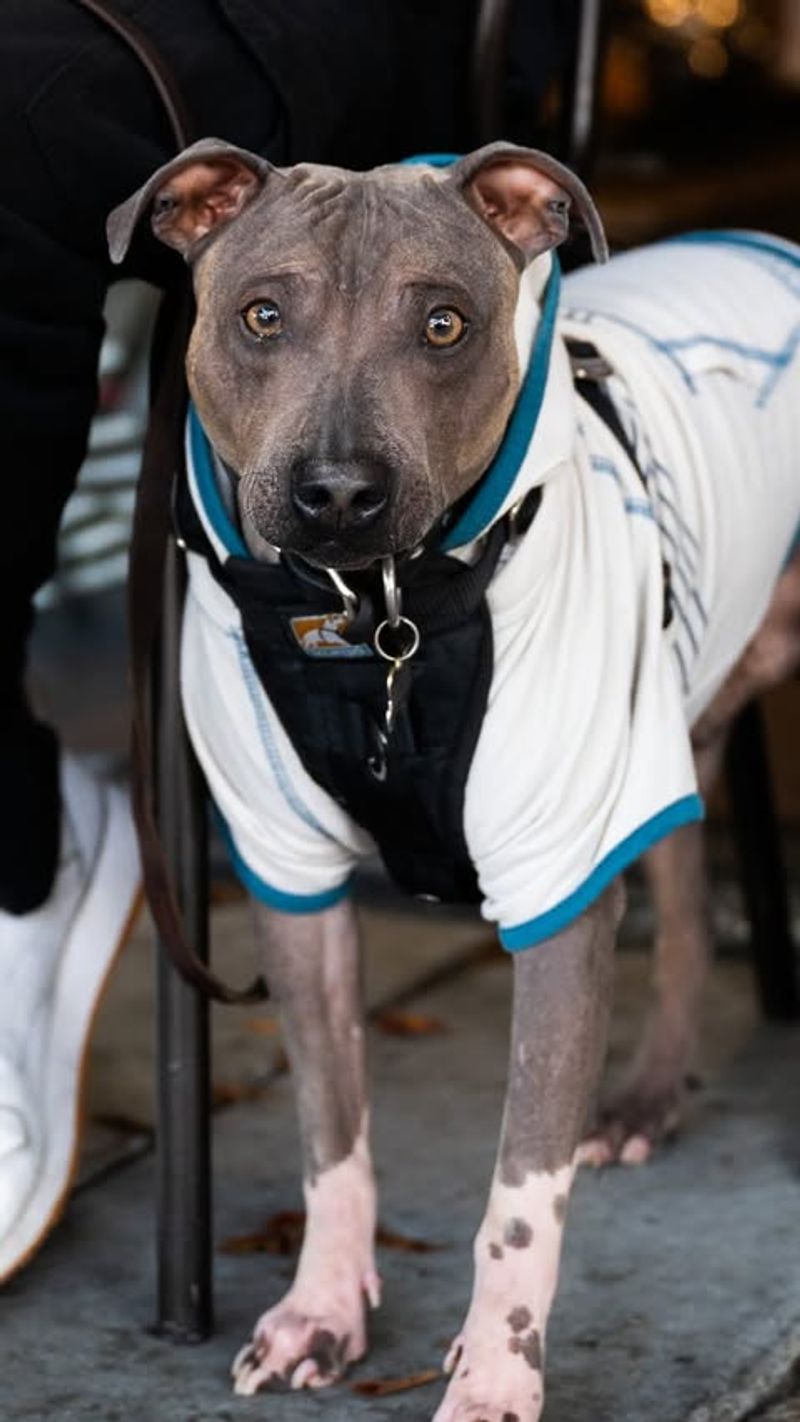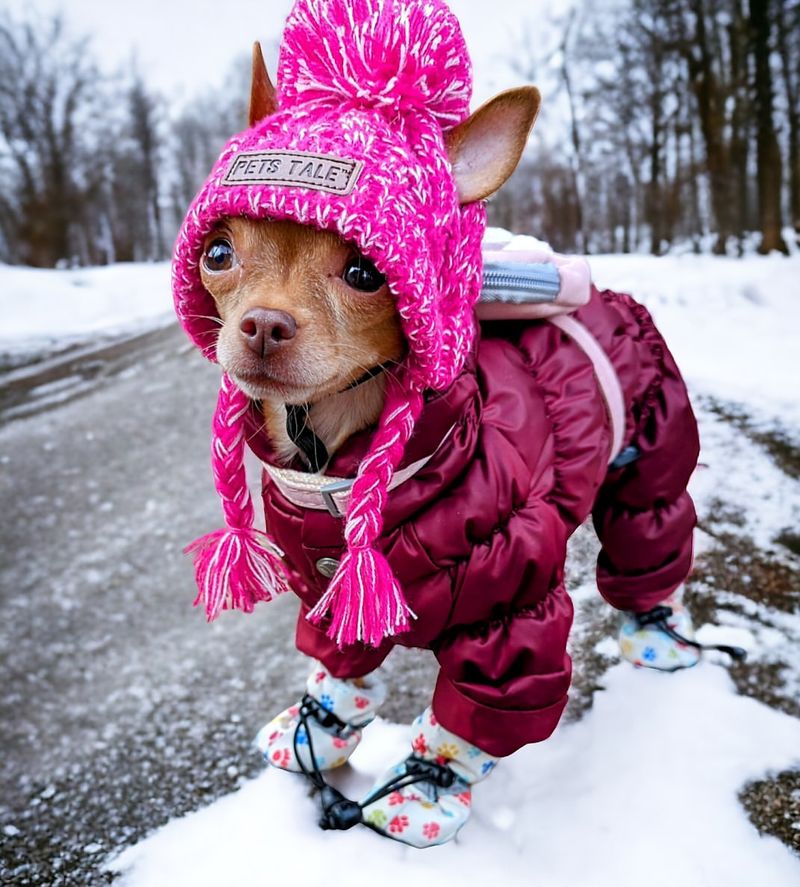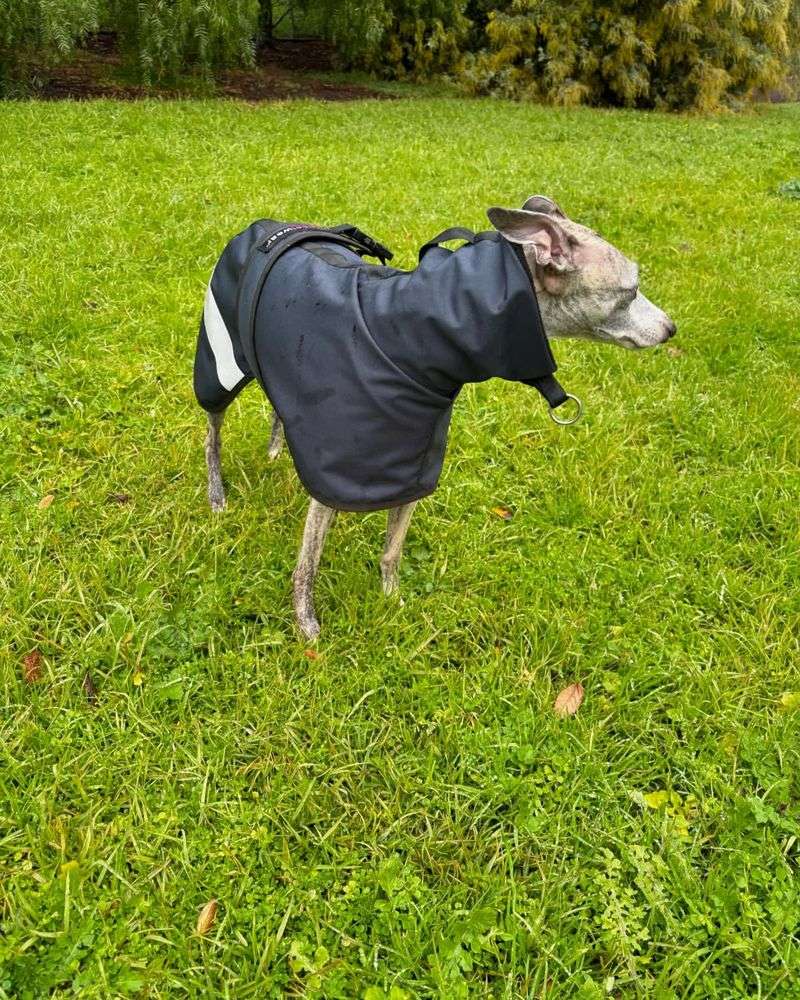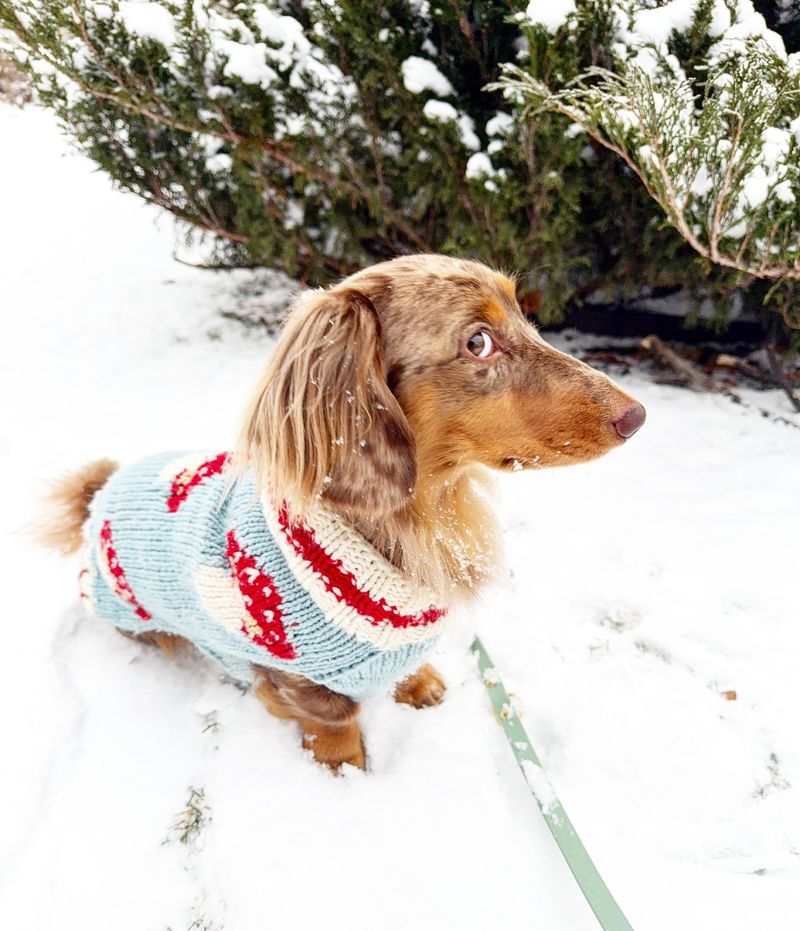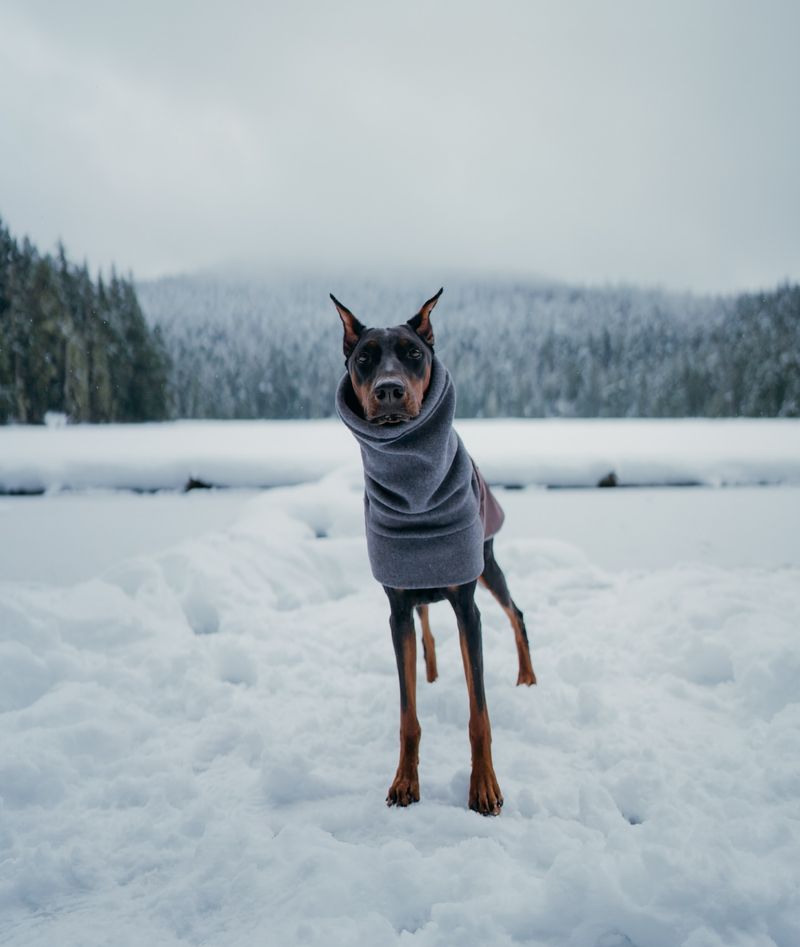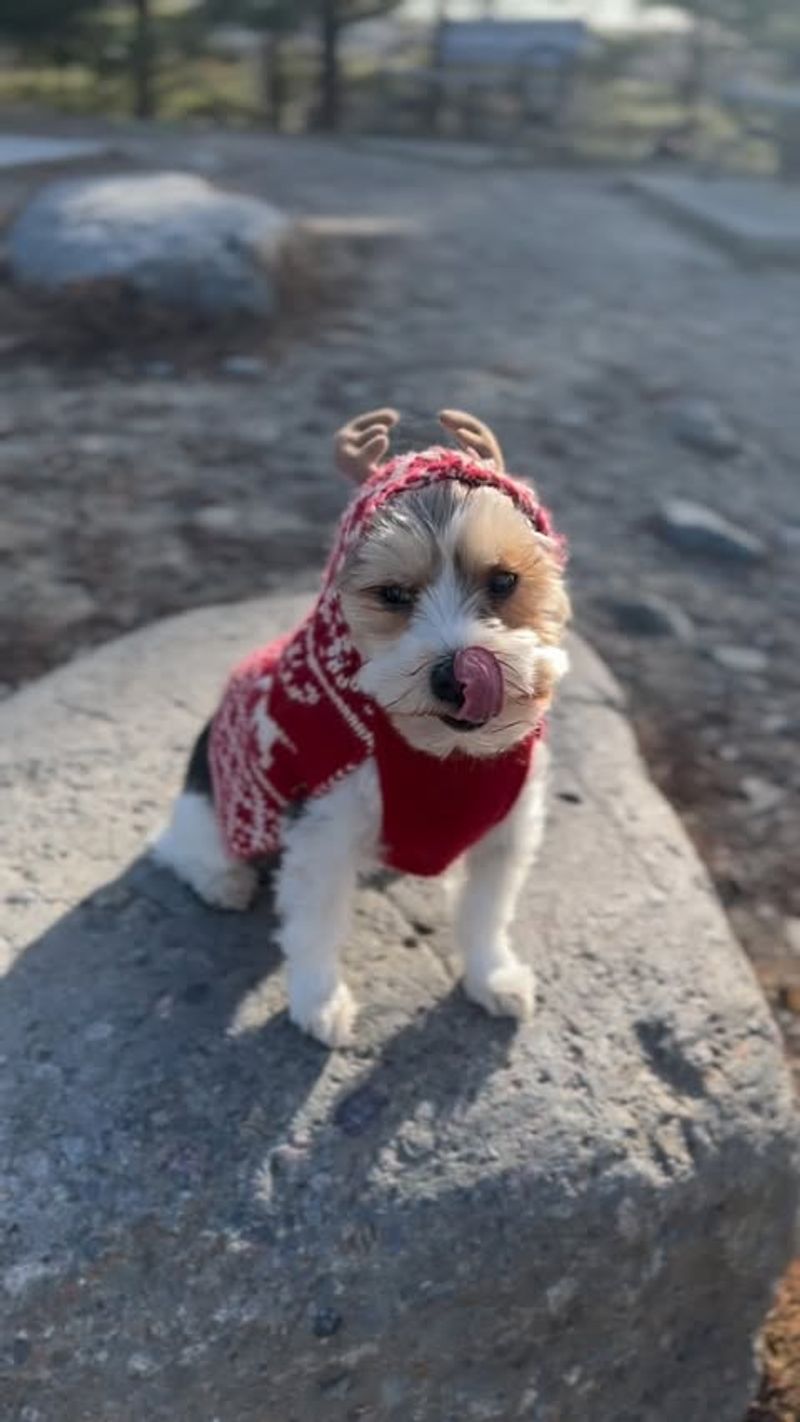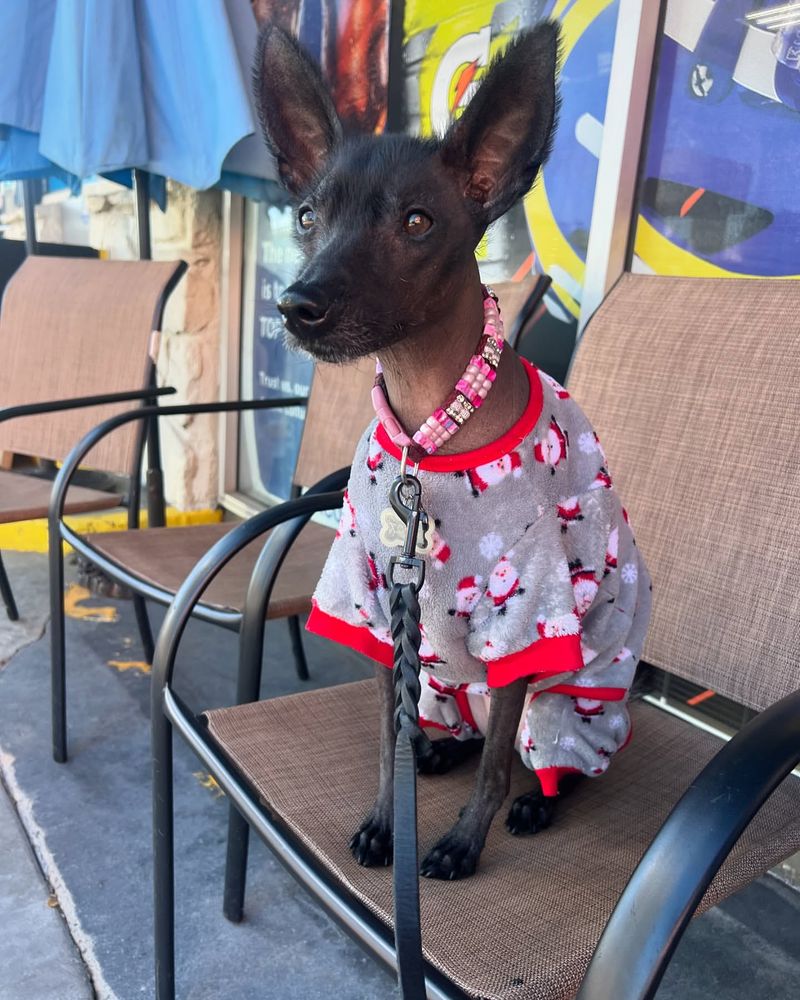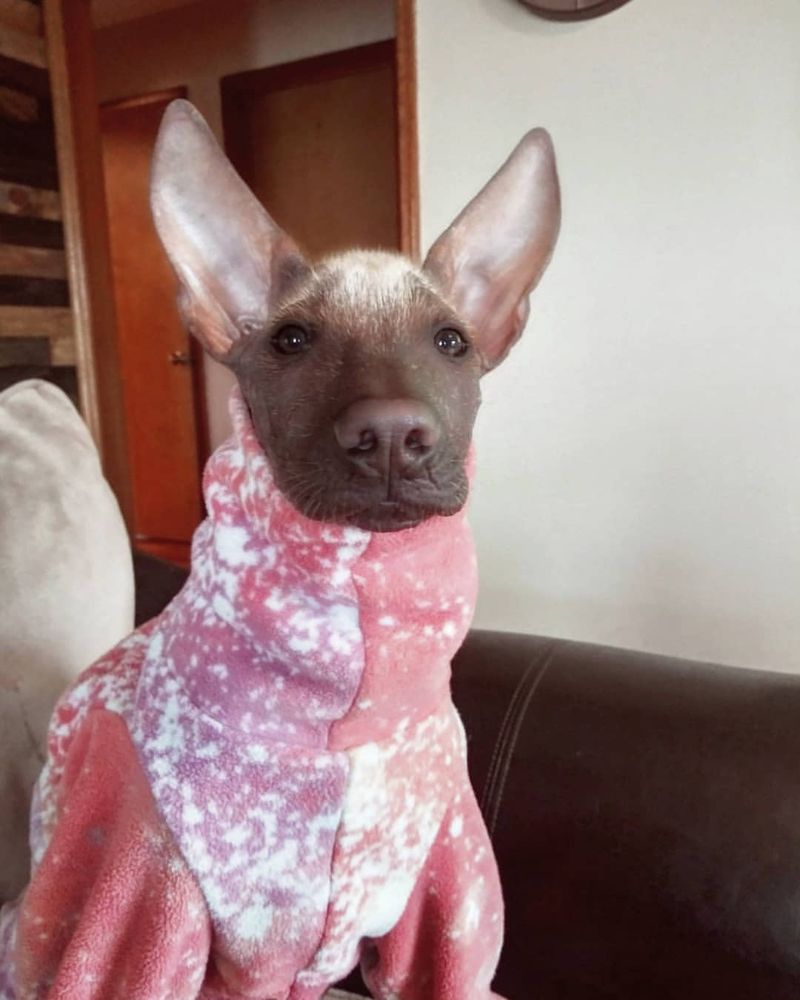Discover the world of dog breeds that find cold weather a bit too chilly for their liking. Some dogs are naturally less equipped to handle the drop in temperature, so they require extra care during the colder months. This guide explores 16 dog breeds that are particularly sensitive to cold weather, providing insights into their unique characteristics, challenges, and how best to care for them when the chill sets in.
Pug
Pugs, with their short noses and compact bodies, are not well-suited for cold weather. Their coats are not thick enough to provide necessary insulation.
When outside, dressing them in a cozy jacket or sweater is important to retain body heat. Limiting outdoor time prevents them from becoming too cold.
Engaging them in indoor play can keep them active and entertained. Providing a warm, comfortable resting spot ensures their well-being. Regularly checking their warmth helps maintain their health during chilly months. Keeping them cozy is key to their happiness in winter.
Boxer
Boxers are known for their short coats and athletic builds, but they don’t fare well in cold weather. Their lack of insulating fur makes them vulnerable to low temperatures.
Equipping them with a warm coat during outdoor adventures helps retain body heat. Short, frequent walks are better than long ones to prevent getting too cold.
At home, providing a warm resting area, like a heated bed, ensures their comfort. Engaging them in indoor play keeps them active. Regular checks on their warmth promote health and happiness during winter.
Maltese
Maltese dogs have long, silky fur, which, while beautiful, does not offer much warmth. Without an undercoat, they are prone to the chill of cold weather.
Outfitting them with a warm sweater during walks helps keep them comfortable. Limiting outdoor time is essential to prevent them from getting too cold.
Providing a warm, cozy home environment, like a heated bed, ensures their well-being. Regular grooming keeps their fur from becoming cold and wet. Ensuring they stay warm is key to their happiness and health during winter.
Basenji
Basenjis are known for their short, fine coats, which provide little insulation against the cold. This makes them sensitive to cooler temperatures.
A warm sweater or coat is necessary when they are outdoors. Short, frequent walks are better than long ones to avoid getting too cold.
Providing a warm and cozy indoor environment, such as a heated bed, ensures their comfort. Engaging them in indoor activities keeps them entertained and active. Monitoring their warmth regularly helps maintain their health and happiness during cold weather.
Chinese Shar-Pei
Chinese Shar-Peis, with their loose skin and short coats, can be sensitive to cold weather. Their bare skin folds can make them prone to chills.
A warm coat is essential during outdoor excursions to retain their body heat. Limiting outdoor time prevents them from becoming too cold.
Providing a warm, cozy indoor environment, such as a heated bed, ensures their comfort. Regular checks on their warmth help maintain their health throughout the colder months. Keeping them comfortable promotes their well-being during winter.
Borzoi
Borzois are known for their elegant and slender bodies, but their coats are not thick enough for cold weather. They are sensitive to low temperatures due to their lack of insulating body fat.
A warm coat during outdoor activities is essential to help them retain body heat. Limiting their time outside is advised to keep them comfortable.
Providing a warm and snug environment indoors, such as a heated bed, ensures their comfort. Regular checks on their warmth promote health and well-being during colder months. Attention to their comfort keeps them happy and healthy.
American Hairless Terrier
The American Hairless Terrier, as its name suggests, lacks a protective coat to shield against cold weather. This makes them extremely sensitive to temperature drops.
Equipping them with warm clothing during outdoor activities is essential. Limiting their exposure to cold weather helps prevent discomfort.
A cozy indoor environment, with heated bedding, ensures their comfort. Engaging them in indoor activities keeps them active. Regular skin care is important due to their hairless nature. Ensuring they are warm and comfortable is crucial for their well-being during colder months.
Italian Greyhound
Italian Greyhounds, with their slender frame and thin coat, are particularly sensitive to cold weather. Their lack of insulating body fat makes them prone to feeling chilly.
A warm sweater or coat is a must during colder days. These dogs thrive on human companionship, so interactive indoor play is ideal when it’s too cold outside.
Providing a warm, safe space at home, like a heated bed, ensures their comfort. Regular monitoring of their warmth helps prevent discomfort and keeps them healthy during the chilly months.
Chihuahua
Chihuahuas are tiny dogs with big personalities, known for their sensitivity to cold. Their short coat offers little protection against chilly winds, making a cozy sweater a must during winter walks. Owners often find their Chihuahuas shivering even indoors, seeking warmth from blankets or laps.
These pint-sized companions thrive in warm environments, where they can bask in the sun. In colder climates, they benefit from heated beds or extra clothing layers. Despite their delicate nature, Chihuahuas are energetic and lively, enjoying indoor playtime when outside temperatures drop. Keep them warm to maintain their spirited nature.
Whippet
Whippets are graceful, speedy dogs with a sensitive side, especially to cold weather. Their thin skin and short fur make them vulnerable to chilly temperatures, requiring protective clothing. Owners often dress them in snug coats for outdoor excursions.
Indoor heating and warm sleeping areas, like insulated dog beds, provide comfort. Despite their sensitivity, Whippets enjoy brisk runs but should be monitored in cold climates. Offering a gentle disposition and charming personality, these graceful dogs thrive best with thoughtful care and warmth, ensuring they remain healthy and happy throughout colder seasons.
Dachshund
Dachshunds, with their elongated bodies and short legs, are adorable yet sensitive to cold. Their short coats provide minimal protection, necessitating warm clothing during outdoor activities. They often seek warmth under blankets or by a fireside.
These curious canines are prone to shivering in cold environments. Heated dog beds and warm clothing are essential for their comfort. Despite their vulnerability, Dachshunds are lively and affectionate, enjoying playful moments indoors. Ensuring they stay warm keeps their spirits high, leading to a joyful companionship even during the chilliest months.
Miniature Pinscher
Miniature Pinschers, known for their spirited nature, face challenges in cold weather due to their thin coats and small size. A snug sweater or coat is essential for outdoor outings, protecting them from biting winds.
These vigilant companions prefer cozy indoor settings, often curling up in blankets or near heaters. Despite their sensitivity, they maintain a lively demeanor when kept warm. Owners can ensure their comfort with heated mats or insulated beds. Miniature Pinschers are resilient yet require thoughtful care during colder months to keep them energetic and cheerful all season long.
Yorkshire Terrier
Yorkshire Terriers, though adorned with beautiful long coats, are surprisingly susceptible to cold weather. Their small size and thin
Peruvian Inca Orchid
The Peruvian Inca Orchid, known for its exotic and hairless appearance, feels the cold more intensely due to its lack of fur. This breed hails from a warm climate, making it highly sensitive to low temperatures. Owners should ensure they are properly dressed in winter clothing to keep warm.
Due to their delicate skin, it’s vital to moisturize regularly, especially in dry, cold conditions. Indoor heating can dry the skin further, so use a humidifier to maintain moisture levels. Protective clothing, like sweaters and booties, can help safeguard against the cold.
Training these dogs to enjoy wearing clothing is beneficial. It ensures they remain comfortable in colder climates.
Xoloitzcuintli
The Xoloitzcuintli, also known as the Mexican Hairless dog, greatly feels the chill due to its sparse hair or complete hairlessness. Originating from warmer regions, these dogs require extra warmth in cold weather.
Providing them with thick, protective clothing is essential. This breed benefits from indoor living during winter, where temperatures are more stable. Ensure they have cozy bedding, preferably near a heat source like a fireplace.
Regular skin care is crucial. Use gentle cleansers and moisturizers to prevent skin issues. Gradual exposure to colder temperatures can help them adapt without risking their health.
Azawakh
The Azawakh is a slender and elegant breed originating from the Sahara, making it highly susceptible to cold climates. With their thin coat and lean body, they lack natural insulation against the chill.
Owners should invest in quality winter gear, including coats and scarves. Keeping these dogs active indoors or in mild outdoor conditions will help maintain their body warmth. Regular exercise is necessary, but care should be taken when temperatures drop significantly.
Avoid prolonged exposure to snow and ice. Boots can protect their sensitive paws from cold surfaces. Always check for signs of discomfort or shivering.


